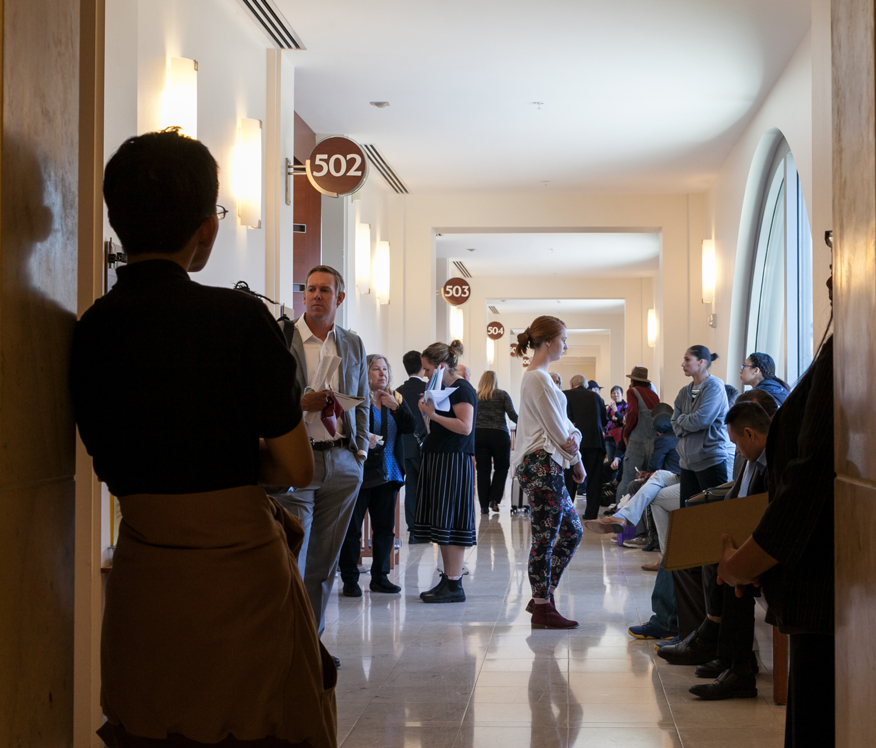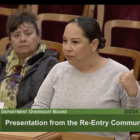A landlords’ group plans to sue San Francisco over tenant protections established in response to the COVID-19 pandemic, according to the organization’s executive director.
The Board of Supervisors this month approved a permanent ban on evictions for rents unpaid from mid-March through July. An earlier local eviction moratorium would have allowed landlords to start pursuing evictions of tenants for any remaining unpaid rents — even those due during the emergency — by the end of December. The end date of the eviction ban is based on an executive order by Gov. Gavin Newsom, who could extend the time period.
The switch to a permanent ban galvanized the San Francisco Apartment Association, a property owners group with thousands of members, to threaten legal action. If the group prevails, vulnerable renters could be displaced.
“Although the Board of Supervisors had good intentions, tenants who rely on this law to not pay rent may end up evicted,” said tenant attorney Joseph Tobener in an article his firm published about the permanent eviction ban and potential lawsuit.
Real estate attorney Andrew Zacks told the Public Press he would represent the Apartment Association in a suit against the city over the legislation. Janan New, the association’s executive director, confirmed this. Neither Zacks nor New responded to further requests for comment.
Tobener predicted the lawsuit was just over the horizon. Zacks “is filing the legal challenge in Federal court as soon as the Mayor signs,” Tobener said via email.
Mayor London Breed has until June 26 to sign the legislation. If she attempts a veto, the board could easily muster the supermajority necessary to override it. Supervisor Catherine Stefani cast the lone vote against the legislation.
‘Unconstitutional taking of private property’
In a letter to the Land Use Committee on behalf of the Apartment Association and other landlord and real estate groups, Zacks argued the legislation would result in “an unconstitutional taking of private property without compensation” because landlords would have to house people who had not paid rent.
“If it is enacted, it will promptly be declared invalid, and the city will be paying the attorneys’ fees of the plaintiffs who challenge the law,” Zacks said during public comment at a June 8 committee meeting in which supervisors reviewed the legislation.
The legislation deprived landlords of their state-guaranteed right to evict, Zacks said. He added that this would be legal temporarily under Newsom’s executive orders, which did not allow for a permanent ban even though they empowered local governments to overstep state rules on evictions during the state of emergency.
Author defends legislation
The San Francisco City Attorney’s Office did not respond to requests for comment on Zacks’ arguments.
The legislation’s author, District 5 Supervisor Dean Preston, who worked for two decades as a tenants’ rights lawyer, said it did not conflict with either state law or Newsom’s executive order. “Decades of case law establish the right of the city to control substantive grounds for eviction,” he said via email.
He likened Zacks’ argument to one “used to take on eviction protections for educators, a law I helped write with then-Supervisor Campos and Hillary Ronen.”
That ordinance, which the Board of Supervisors passed unanimously in 2016, forced landlords to wait until summer to issue teachers no-fault evictions — such as when an owner wants to renovate a unit or move into it. Zacks and the Apartment Association sued to overturn that law by arguing that it illegally preempted the eviction rights granted by the state. They won, but the First District Court of Appeal in San Francisco overturned the ruling in 2018 and the law was reinstated.
Attorneys weigh in
Real estate attorney Daniel Bornstein said the legislation damages landlords in at least a couple of ways. First, even though it says it won’t restrict landlords’ ability to recover rent that’s due, it takes eviction off the table. In doing so, “by definition, they’ve restricted the landlord’s ability to recover rent,” he said. “That’s the greatest leverage the owner has.”
Second, Bornstein said that eviction proceedings often resolve with the tenant entering a court-enforced repayment plan, rather than moving out. Without this tool, landlords might hire debt-collection services to recover unpaid rents, but those companies take a cut of the money.
Tenants’ attorney Brian Brophy said the law wouldn’t impede landlords’ ability to recover rents because eviction is a tool for recovering the property itself, not money. “If a landlord tried to bring an unlawful detainer after a tenant moved out, they clearly can’t do that,” he said, referring to the first legal step in executing an eviction.
The Apartment Association recently reported that nearly all tenants paid their rents in June, according to an internal survey of more than 10,000 apartments, despite widespread income loss due to the COVID-19 pandemic.
With the lawsuit looming, Tobener counseled renters to weigh whether it was worthwhile to remain in homes they could not afford. “It will be up to one judge in San Francisco Superior Court to decide whether the eviction lawsuits for nonpayment can go forward,” he said. “This is a risk that some tenants should not be taking.”










